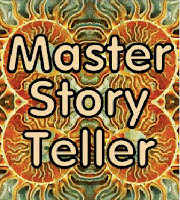The Master Storyteller Method of Story Development
The Master Storyteller Method has four parts: Part One: Create A Story World What is a story world? Think: the world of Harry Potter or the Star Wars universe. Whether you are planning a single story or a whole series, creating a diverse and detailed story world will enrich and inform each story you draw from it. Part Two: Draw Out Your Storyline While a story world describes the environment, situation, and issues that will define your story, it is not a story itself. Drawing on this material, you will create a storyline for your Main Character / Protagonist that will begin with something that upsets the status quo, follows a quest (both personal and logistic) and concludes with a choice that will determine success or failure. Part Three: Incorporate Story Points Though your storyline may make sense and feel as it it touches all the bases, often a number of important story points may be missing, hidden behind the passion of your storytelling and vision. Here you...
